Rusty Kikuyu village that international and local filmmakers call home
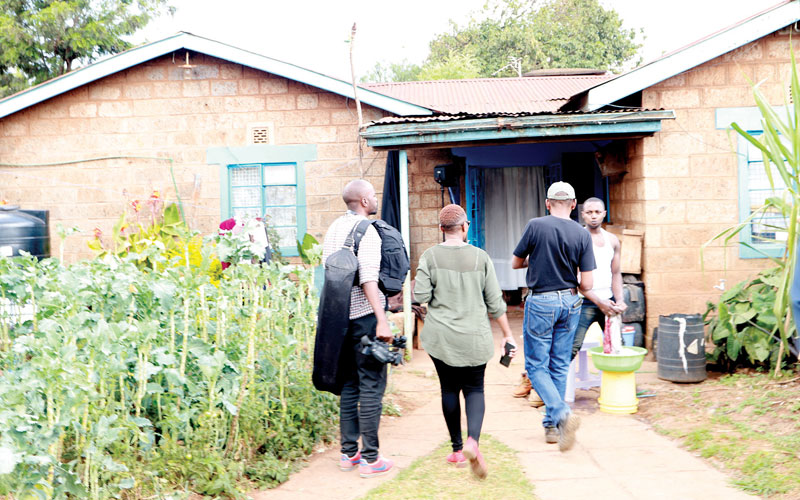
Along the busy Waiyaki Way lies a sleeping giant called Nderi village, which to any stranger may pass as an ordinary rural setup. But the village is a huge filmmaking destination for local and international production houses.
Looking at it, Nderi Village in Kikuyu, Kiambu county, could pass for a normal rural village. It is dotted with the ordinary small shops with rusty old iron sheets synonymous with the Kenyan rural.
The roads are usually red-soil paved all-weather with villagers going about their business selling their wares from the comfort of their shops. But not everything about this village is normal.
A committee of sorts has approved almost every colour on the shops and residences.
In this friendly village, a majority of its inhabitants understand filming language. Words and phrases such as stand-by, camera rolling, action, onset and cut have a resounding meaning.
From the butcher to mama mboga and hairdresser, they’ve all become acquainted with the filming jargon.
Taking a stroll through the village, you might notice familiar sights from the shows you’ve watched on TV. This is because Nderi Village has played host to countless local and international films.
According to Entertainment Film and Welfare Ensemble (EFWE) and Magic Galaxy Productions CEO, John Karanja, every villager in Nderi is a potential film star.
Just recently, MultiChoice’s Mnet Production Company pitched a tent in the village to shoot a film series and is scheduled to be there for the next seven months.
“We were contracted to reproduce a South African mini-series for the Kenyan market and as soon as we got the brief, we knew exactly where we should do the filming and that is Nderi village.
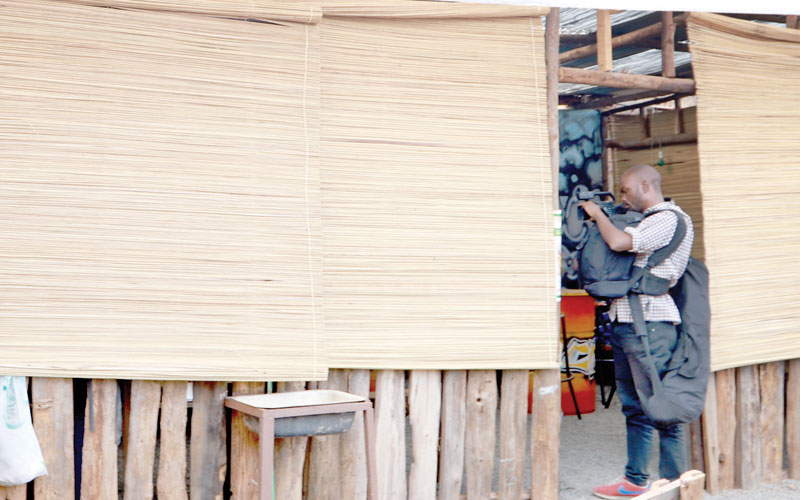
We did not even need to conduct reconnaissance,” Zamaradi Productions Limited CEO and executive producer Appie Matere tells Spice.
Talent hub
The village is every filmmaker’s dream. “When going about filming, producers have to create a set to film in and sometime we build a set from scratch per the script.
But here in Nderi, we have all the structures already put up and all we need to do is hire them and transform them into film sets,” says George Mungai, the production designer and supervising producer Zamaradi Productions.
Here, residents can tell a visitor from a local from a mile away. And when someone looks stranded, boda boda riders will offer to help you and get you to the ‘filming location’ because more or less they can tell why you are there from the onset.
A camera rolling here does not attract uncalled attention. The locals-only appear on set when called upon by the filmmakers.
For the Nderi villagers, crowding and shoving each other behind or in front of a camera, as is the norm in Kenya every time a film crew is out and about its business, is unheard of. They are already accustomed to the culture.
Socio-economic benefits
When Zamaradi set up shop, they held auditions for the locals; they did not outsource. “Since everyone in the village is a potential actor, we just held auditions and 840 people showed up,” Appie recalls.
They only needed 12 people, but even then, they call upon villagers for the ‘extras’ and that way, they help the locals eke out a living. Extras are the actors and actresses who serve as ‘dressed background’.
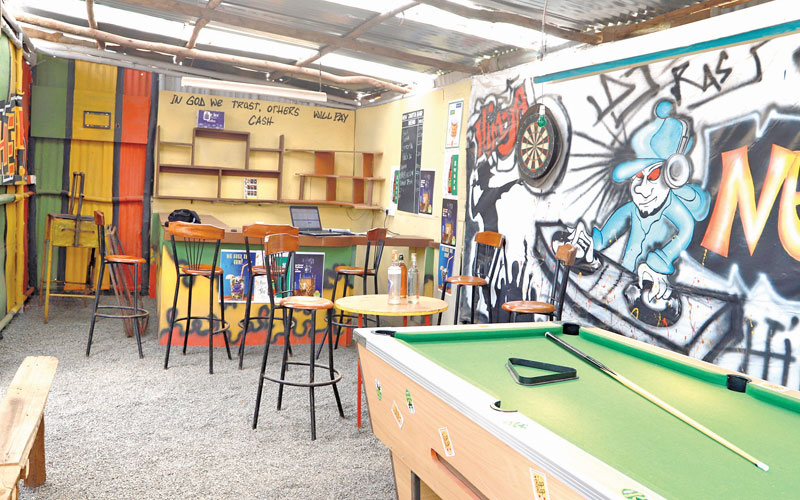
They help to sell the idea that a film scene is filled with real people just going about their daily business and aren’t always professional actors.
When we paid the village a visit last week, it was a beehive of activity with filmmakers busy at work. As we approached a house a filmmaking team had settled on as part of their set, Mungai went on to show us a spot that was a drinking joint.
“Right now you cannot see the bottles and glasses that used to be here, but this used to be their ideal spot during the day where they could guzzle a drink known as ‘Piston’,” he tells us.
It’s hard to tell that it used to be smelly because the area is now squeaky clean. “They told me since they started making a few more coins from acting, they now go for stuff that will not ‘incapacitate’ them the whole day; they have upgraded their liquor to something more ‘classy’,” he says laughingly.
According to Karanja, the filming realisation was God-sent because it has brought about great positive change, especially among the youth. He says: “The level of crime has greatly reduced. The cells are empty for weeks on end because the young men here have reformed, thanks to filmmaking. They now know they are potential actors and cannot show up at ‘work’ drunk; they are sober now.”
Even the local police are all praise for filming culture in the village, attributing the reduction of crime rates to it. “Once in a while, even without requesting the authorities to patrol, they come around at night just to ensure the sets’ furniture is safe because by ensuring work is fine, crime rates remain low,” remarks Karanja.
“The owner of this house fronted it and it perfectly fit our script. We only had to repaint it to fit the plot; according to her preferred colours of course and now, the family boasts of a freshly painted house and repaired fence,” says Mungai.
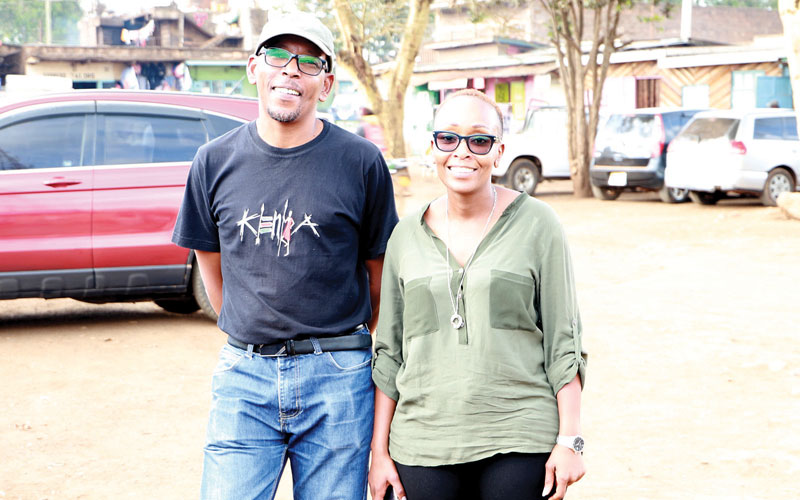
While the crew uses the house, the family goes about their everyday lives. “They go to school and work and come back at 5pm. All we do is rearrange the furniture and we are all good,” says Matere.
The routine goes on for as long as the crew needs the premises and the owner makes between Sh3,000 and Sh10,000 for every day the house is in use by the filmmakers.
“They get to pocket the money themselves instead of having to construct a set, which would cost about Sh140,000 to Sh200,000. After filming, chances are that the set will go to waste, so it’s beneficial and economical if we hire or lease a premise,” adds Matere.
Here, actors take home between Sh10,000 and Sh20, 000 according to their roles and nature of their exploits. Everyday utilities are sourced locally, so this boosts the local economy.
Twenty-year-old actress Joyce Kiala appreciates what Nderi village has offered for her after high school studies.
“I completed my high school studies last year and I was just attending pre-college courses when I auditioned. It was tough, but I appreciate the fact that I got the lead role.
Usually, I don’t work all day; I get on set and work till we are done filming then I go on with my day and I don’t need to be on set every day,” she tells Spice.
Trickle-down effect
In less than two weeks, Zamaradi had spent about Sh5 million in Nderi as the filming gained pace. “Imagine if more rural villages would adapt to this filming culture, lives would change drastically for the better.
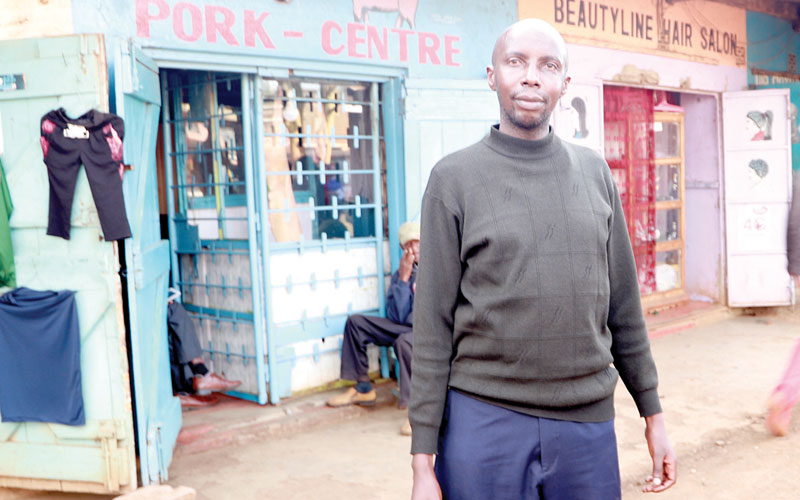
Some filmmakers needed to build a club and a pauper’s home from scratch and they bought all the needed materials from this village.
Even the meals are catered for by the local hotels and that way, the local business owners make money, including even the very small scale ones such as the mama mboga,” Matere says.
While they pitch a tent, one of the villager’s pieces of land acts as a car park and she too earns her fair share. “Even the extras take turns to be on a film and everyone gets an opportunity to appear.
The Nigerian film industry does so and also embraces local productions. I wish we can have more filming villages in Kenya and grow our film industry,” says Karanja, who has nurtured talents in the village for 23 years.
Joseph Kioni is an art director and construction manager who has been at it for 35 years. He decries the lack of interest by the youth to do manual jobs. “When building a set, we require plumbers and electricians, but manual jobs are not well embraced by our young people.
Most of them crave for white and blue-collar jobs, so sometimes it gets hard getting plumbers and other manual workers around,” he sighs.
Kenya Film Commission CEO Timothy Owase notes that the filming industry is an immense sector of the economy that has the capability to create many job opportunities.
“By employing local labour even to build sets, lives are directly impacted and this is what we hope to achieve as a government. It may appear minimal, but a few extra thousands of shillings in the hands of hardworking villagers as is the case in Nderi has a huge impact on people’s lives,” he said.
Owase says the country should give tertiary skills a serious consideration. “Clearly, those skills are not limited to building skyscrapers only, they are skills that can be applied in everyday life and it is a good thing that the Competence-Based Curriculum is here with us.
We have to see how to mushroom more Nderi villages in Kenya and promote film and other talents while at it,” he says.












